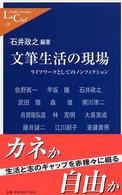基本説明
Describes the techniques traditional therapists can effectively employ, given the patient's strengths and limitations.
Full Description
After a long period of relatively slow change and development, the practice of psychotherapy entered a phase of vigorous experimentation in the 1960s. Greatly increased public recognition of the role of psychological approaches has brought about a dramatic upsurge of demand for mental health services on the part of broader segments of the population than ever before. Many kinds of people now seek aid, and display a greater variety of symptoms and life problems than are recorded in the earlier case-history literature.
The professional response to this new demand markedly increased the professions creativity and imagination, as this volume outlines. While it is difficult to devise a precise category to cover all forms of such experimentation in psychotherapy, one major characteristic has been an increase in activity. The non-directive or client-centered therapist frequently speaks almost as much as his client, yet he is not considered active, since he attempts to limit his communication to the reflection of the clients feelings.
More frequently an attempt is made to distinguish between insight-oriented therapies and active therapies in terms of differing goals.
Active psychotherapy is seen as being concerned with techniques that focus directly on the removal of symptoms, such as anxiety or maladaptive overt behavior. The need to establish a clear dichotomy between insight and behavior modification has often been challenged: many of the therapists who stress insight do so in the belief that increased insight, no matter how arrived at, will modify overt behavioral anxiety. Experimentation in Psychotherapy exposes the reader to a wide variety of therapies. Although changes in treatment methods, and a more short-term orientation, have limited some future developments in the field, this volume admirably describes the techniques traditional therapists can effectively employ, given the patient's strengths and limitations.
Contents
Contributors Introduction -- Harold Greenwald Lines of Advance in Psychoanalytic Therapy -- Sigmund Freud The Further Development of an Active Therapy in Psychoanalysis -- Sando Ferenczi The Drive for Superiority -- Alfred Adler Psychoanalytic Treatment as Education -- Thomas S. Szasz The Toxoid Response -- Hyman Spotnitz Effect of Paradigmatic Techniques on the Psychic Economy of Borderline Patients -- Marie Coleman Nelson Recent Developments in Direct Psychoanalysis --Charles T. Sullivan The Role of Activity in the Treatment of Schizoid or Schizophrenic Patients -- Goodhue Livingston Transactional Analysis -- Eric Berne Reflections on My Method of Group Psychotherapy and Psychodrama -- J. L. Moreno Toward a Holistic Treatment Program --Herbert A. Otto Active Strategies in Marriage Counseling -- Aron Krich The Family Approach to Marital Disorders -- Nathan W. Ackerman Marriage Therapy -- Jay Haley Methods of Verbal Suggestion -- K. I. Platonov Reciprocal Inhibition as the Main Basis of Psychotherapeutic Effects -- Joseph Wolpe Implosive Therapy in the Short-Term Treatment of Psychotics -- Robert A. Hogan Learning Theory and Psychotherapy Revisited: With Notes on Illustrative Cases -- E. Lakin Phillips and Salah El-Batrawi Neobehavioristic Psychotherapy: Quasi-hypnotic Suggestion and Multiple Reinforcement in the Treatment of Postinfantile Dyscopresis -- Donald R. Peterson and Perry London The Use of Symptoms as an Integral Part of Hypnotherapy -- Milton H. Erickson The Treatment of Frigidity and Impotence -- Albert Ellis Paradoxical Intention: A Logotherapeutic Technique -- Viktor E. Frankl Methodology in Short-Term Therapy -- Lewis R. Wolberg Treatment of the Psychopath -- Harold Greenwald Index








